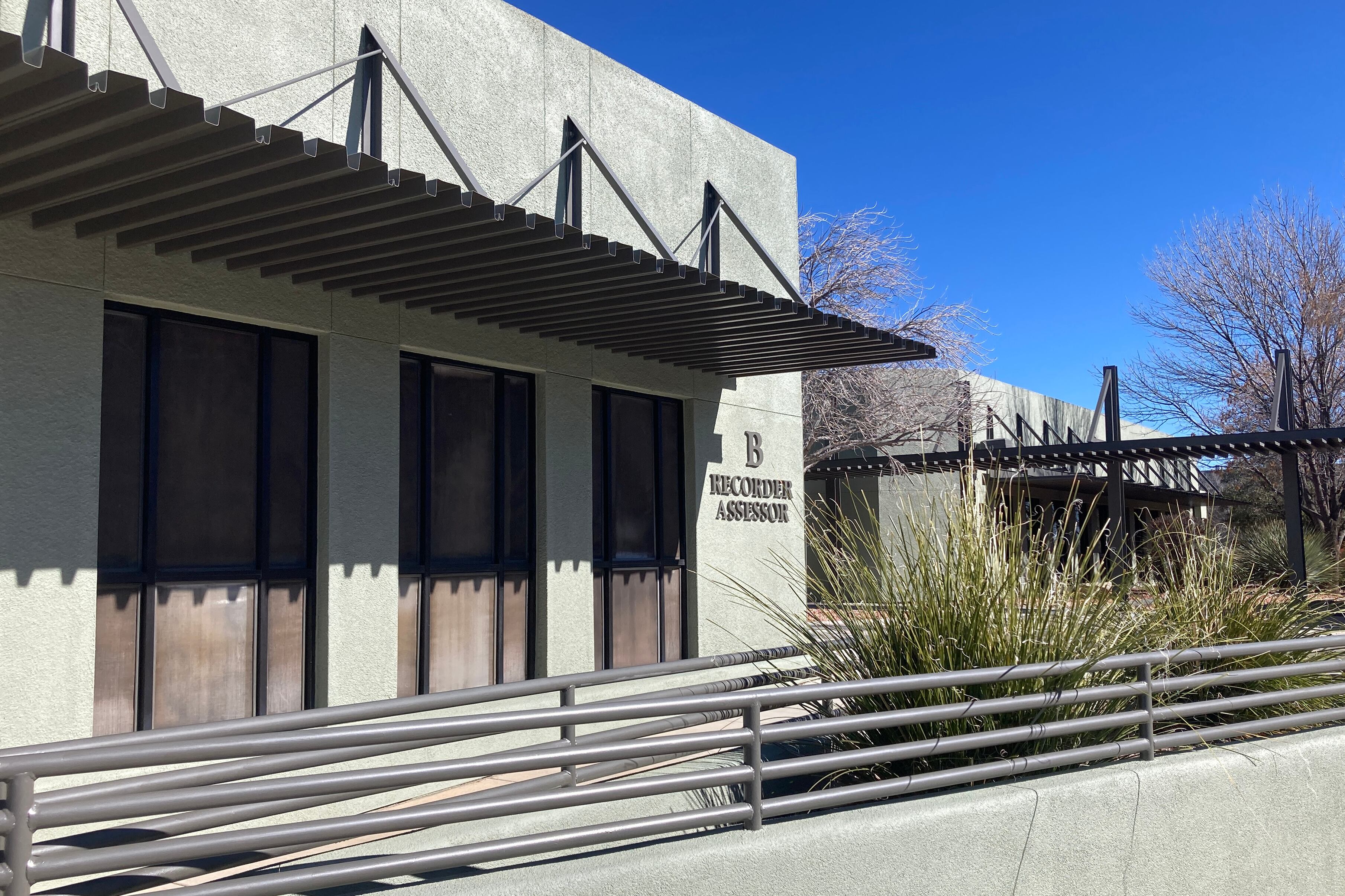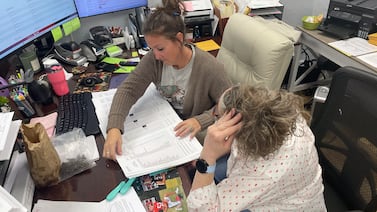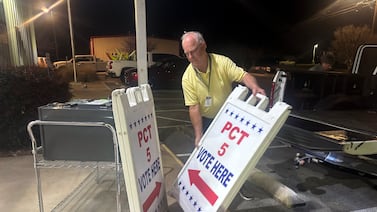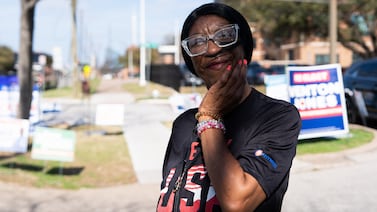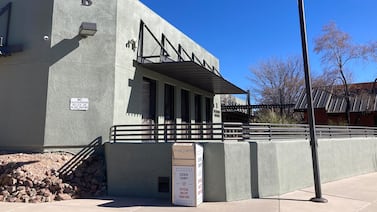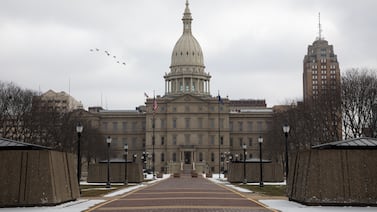Votebeat is a nonprofit news organization reporting on voting access and election administration across the U.S. Sign up for Votebeat Arizona’s free newsletter here.
An Arizona judge is allowing Cochise County officials to throw out the results of a local tax election after challengers identified a requirement in state law that they said the county didn’t follow — one that applies only to a specific kind of election and that other counties haven’t followed in the past.
The case involves the county’s May 2023 all-mail election on a proposed tax to fund construction of a new jail. The Arizona Court of Appeals found last year that the county erred by not sending ballots to its 11,000 inactive voters. Because of that error, the county supervisors’ plan to redo the election is reasonable and legal, visiting Judge Michael Latham of the Cochise County Superior Court ruled May 22.
Arizona counties typically send ballots only to active voters, but the appeals court found that for local taxing district elections — such as the Cochise jail election — the law required officials to send ballots to inactive voters as well. A voter’s status is changed to inactive only if their election mail is returned as undeliverable, or if the recorder gets notice that they have moved but can’t reach them.
Latham’s ruling did not directly void the results of the election, in which voters approved the jail tax by 750 votes out of 25,032 ballots cast. But it will effectively do so, by allowing county supervisors to move forward with a proposed settlement with the residents who challenged the result. In that settlement, the county agrees to stop collecting the tax, at least until a new election can be held.
“The Court of Appeals already ruled that the election was fatally flawed due to the disenfranchisement of approximately 11,000 voters,” Latham wrote, finding that the settlement calling for a new election was a reasonable way for the parties to resolve that issue.
The Arizona Court of Appeals and Supreme Court had assigned Latham to determine whether the county’s error in leaving out 11,000 inactive voters was enough to have changed the outcome of the election. But that was before talks of a settlement began, and Latham didn’t make a determination on that question.
Latham’s approval allows the supervisors to reach an agreement that invalidates the election results — even without a finding that the mistake changed the outcome of the election.
This will probably be the first and last election in the state in which officials are held liable for not sending ballots to inactive voters.
That’s because, after last year’s appeals court ruling, lawmakers passed a bill, House Bill 2129, that made clear that counties should not send ballots to inactive voters. The bill saw rare bipartisan support in the split Legislature, and Gov. Katie Hobbs signed it May 13.
Election challenges are more common, but redos are rare
Cases challenging election results over procedural flaws have become more common across the country in recent years, such as the recent challenge to the North Carolina Supreme Court election.
But judges rarely order a redo or overturn results, especially without a finding that errors or fraud changed the outcome of the election.
Arizona has seen nearly every aspect of its election processes challenged in recent years, including in 2022, when gubernatorial candidate Kari Lake claimed that Maricopa County’s ballot printing problems, along with fraud, led to her loss. But judges have mostly thrown out the cases, finding that there was no clear and convincing evidence that any problems affected the outcome of the election.
One recent exception was in the November 2024 election, when Maricopa County put incorrect voter instructions on ballots for a local school board race. A judge ordered a redo of the election, but it never happened because some candidates ultimately dropped out.
Jim Barton, a Phoenix election lawyer who represented a candidate in that case, said he believes that instance and the Cochise County election are different from the cases challenging statewide results, because of the scale of the errors involved and the likelihood that they would have affected the results.
“I think it’s probably the right result,” Barton said about the Cochise County case. “Eleven thousand people didn’t get their ballot.”
Fontes motion to intervene rejected
In Cochise County, the supervisors initially defended the results of the tax election against the residents’ challenge, but new county supervisors who opposed the structure of the jail tax took office in January, and didn’t believe the election had been run fairly. They asked Latham to approve the settlement agreement with the residents, in which the county would agree to stop collecting the tax and to hold a new election.
Secretary of State Adrian Fontes, a Democrat, tried to intervene and block the settlement. Fontes told the court that the office had an interest in seeing that “election contests are decided not by a handshake deal between the challenger and the government entity conducting an election.”
But Latham rejected Fontes’ motion in his May 22 ruling.
Phoenix election lawyer Andy Gaona said the settlement, which awards $130,000 to one of the plaintiffs, Daniel LaChance, to use for attorney fees, “is little more than a political gift from Cochise County to the plaintiffs and should concern all Arizona voters.” Latham’s refusal to allow Fontes to intervene is concerning as well, he said.
“I hope this is an isolated incident in an election contest, because no one other than the County was in the case to defend the action, but am worried about the precedent this ‘settlement’ might set going forward,” Gaona said.
The settlement puts the jail tax — which has already collected more than $10 million — on hold at least until a new election can be held. Supervisors on May 6 ordered a new election to take place in November, and the question on the ballot will propose a different structure for a new jail tax that current supervisors prefer.
The case is a win for the residents who sued, including LaChance, who has attempted, without success, to challenge the state’s election procedures before.
The residents’ lawyer, Charles Johnson, called Latham’s opinion “excellent” and said it was thanks to LaChance and others that “the majority of voters and Cochise County have achieved justice.”
“Hopefully the attorney general and secretary of state will listen to reason and not appeal,” Johnson said.
Tim LaSota, the supervisors’ lawyer, said the ruling is “a vindication of Cochise County’s plan to address a difficult election situation and a repudiation of efforts by statewide officials to butt in, take over local elections, and disenfranchise Cochise County voters in the process.”
But Tami Birch, a Bisbee resident, said she does not believe the original election results should be thrown out. She doesn’t think the election was flawed, and said voters’ choice to build a new jail should stay in place. The county’s old jail offers unsafe conditions, she said, and the situation is urgent.
“My tax dollars need to be used ASAP to alleviate the unsanitary, unsafe, and unhealthy conditions,” she said.
Jen Fifield is a reporter for Votebeat based in Arizona. Contact Jen at jfifield@votebeat.org.

